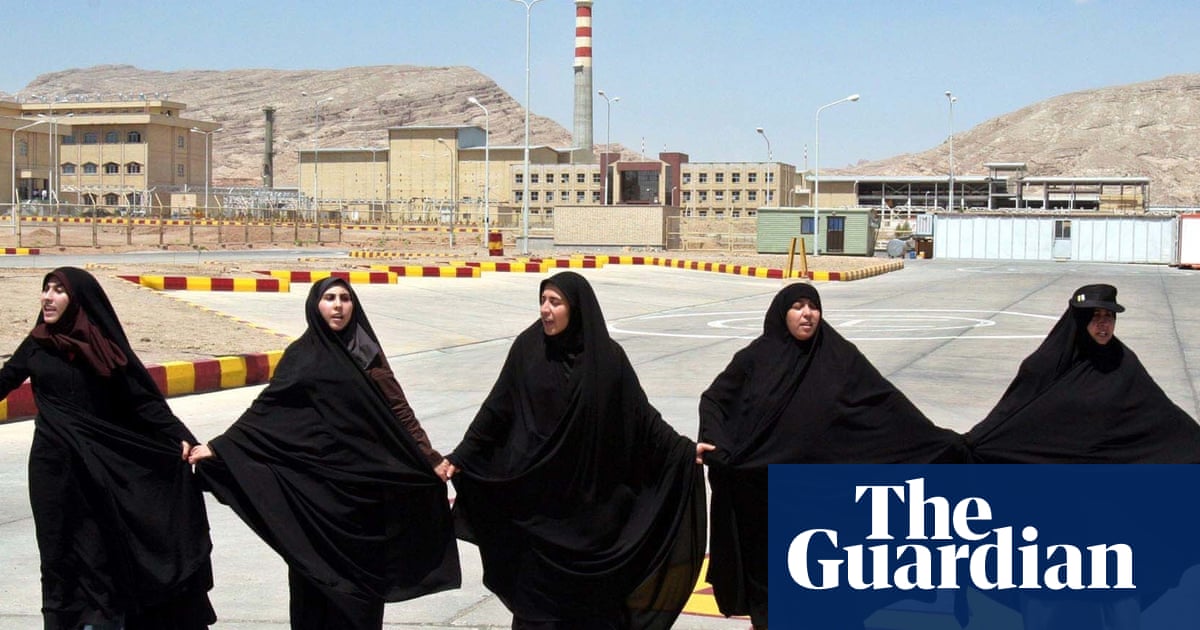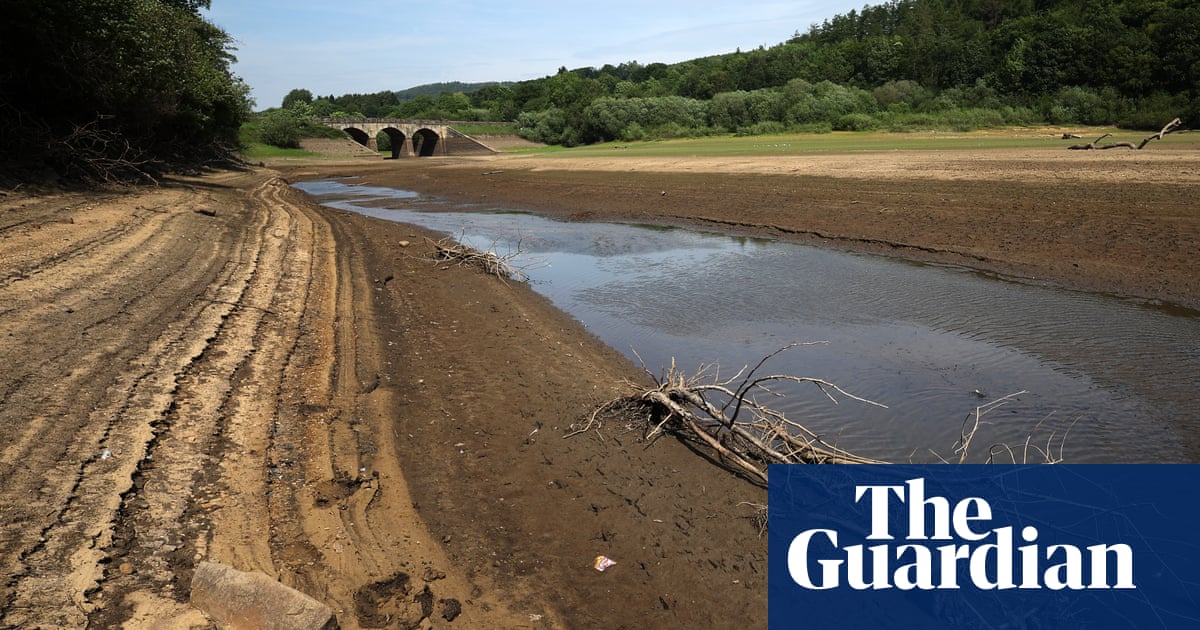How an obscure consultancy firm is helping fracking companies influence traditional owners | Northern Territory

In late August 2024, a curious letter arrived at the Darwin office of Benedict Scambary, chief executive of the Aboriginal Areas Protection Authority (AAPA).
The correspondence was typed and written in corporate style but it was attached to four and a half pages of handwritten names and signatures of traditional land owners from across the Northern Territory’s Top End. A name that Scambary recognised was written on the back of the envelope – William John, a Mudburra Jingili man.
As the head of the NT agency responsible for protecting Aboriginal sacred sites, Scambary was familiar with many of the signatories’ names.
But what was unusual was the contents of the letter – it contradicted earlier advice AAPA had been given from several of the signatories regarding the protection of their cultural heritage.
The letter asked Scambary to explain why AAPA had stopped processing an application by the gas company Empire Energy for an authority certificate it needed at the site of its Carpentaria pilot project, a fracking operation near Cape Crawford in the Beetaloo basin.
Authority certificates set conditions for developers working on or near sacred sites in the NT and are mandatory before fracking projects can progress. Empire Energy’s application for the Carpentaria project had been delayed after heritage concerns were raised by traditional owners.
But the letter, which was leaked to Guardian Australia as part of a trove of documents from the Northern Land Council, asked Scambary to progress Empire Energy’s certificate “as soon as possible”.
When the Guardian approached Scambary he said that after receiving the letter, AAPA staff felt it was necessary to contact the relevant traditional owners and custodians again, to clarify their positions.
He said it emerged from those discussions that most of the signatures had been gathered at two meetings held in August by Empire Energy and a consulting firm called Good Advice.
But when AAPA officials read the letter to some of the people whose names were attached to it, the traditional owners did not agree with its contents.
“The custodians were not aware of what they had signed, and were alarmed by the letter’s denial of their concerns about cultural heritage,” Scambary said.
The traditional owners AAPA spoke to did not deny they had signed the sheet of paper but they gave differing accounts of what they thought they were signing. According to the leaked material, one thought he was merely signing an attendance sheet.
The purported sender of the letter, whose name appeared on the back of the envelope, also insists he did not send it.
When the Guardian contacted John, he said: “It wasn’t [sent] by me.”
Leaked files reveal details of outback meetings
On 15 August 2024, at an outback pub on the Carpentaria Highway called the Heartbreak Hotel, a meeting was held between traditional owners and Empire Energy.
The gathering at the remote pit stop, where travellers share a drink on their long journeys across the Top End, had been organised by Good Advice – a consulting firm hired by the gas company to help navigate relationships with traditional owners and other stakeholders. Several of the attendees had arrived on a bus that it’s understood was facilitated by the firm’s sole director, Greg McDonald.
Two days earlier, McDonald had held a similar meeting on Empire’s behalf with a different group of traditional owners 400km away in the pastoral town of Mataranka, known for its thermal pools.
Accounts of exactly what happened at the meetings differ but there are several common threads. A major leak of Northern Land Council files, correspondence and recordings to Guardian Australia contains claims that traditional owners were offered financial benefits if they agreed to let Empire Energy sell “appraisal gas” – which is gas collected during the exploration phase – from its Carpentaria pilot project in the Beetaloo basin.
The leaked files reveal serious concerns among traditional owners and bureaucrats about the lobbying activities of Empire Energy, Good Advice and several members of the NLC’s full council, who were employed as advisers by the consulting firm.
According to claims made in the leaked material, the meetings ran an agenda favourable to Empire Energy’s aims and presented unrealistic promises of large royalties and other benefits.
Traditional owners were allegedly told payments could be agreed privately with the gas company, outside the usual land rights process overseen by the land council.
Some traditional owners said they recalled signing a document – which would later be attached to the letter to AAPA – but one claimed he “thought he was signing up for the money” that was allegedly promised, according to the documents, and another said he thought he was signing up to join an organisation.
The documents include claims that some of the attendees were confused about the meetings and their purpose. It’s understood some were confused in part because they recognised McDonald from his previous position at the NLC, where he worked until 2023.
Consultation meetings between traditional owners and gas companies are part of the usual process before fracking projects in the Top End can progress. But official consultations are facilitated by the NLC – the federal agency that oversees gas exploration on land covered by the land rights and native title acts – not by independent consulting firms.
With McDonald at the Heartbreak Hotel were executives from the gas company but also – according to traditional owner accounts – at least two current members of the NLC’s full council, which is the main decision making body for the agency.
Adding to the confusion was the timing of the meetings, which was shortly before actual formal land council consultation sessions about the potential sale of exploration gas from Empire’s Carpentaria pilot project were due to start in late August.
Sources not authorised to speak publicly told the Guardian that many of the attendees claim they did not know that Good Advice and McDonald had been hired by Empire Energy.
Three weeks after the meetings, chair of the NLC, Matthew Ryan, wrote to the managing director of the gas company to say traditional owners had raised concerns that it might be trying to “circumvent processes under the Aboriginal Land Rights Act using consultants associated with Good Advice or Mr McDonald”.
In a letter seen by the Guardian, Ryan wrote that the “common themes” raised with the NLC included claims Good Advice was facilitating meetings for Empire Energy with individuals who “may or may not be council members of the Land Council” present and “attempting to pass off the meetings as Land Council meetings”.
He said traditional owners had claimed that Empire, via Good Advice, was “facilitating payments or promising payments” to them outside the agreements negotiated with the NLC through the land rights process.
Who is Greg McDonald?
McDonald worked for the NLC for just over a decade from 2012, according to federal Senate records.
In the years leading up to his departure on 24 March 2023, he was the manager of the resources and energy branch, which oversees the land council’s duties and functions as they relate to the resources and energy sector.
On 12 April 2023 he registered the company Good Advice Pty Ltd.
The company has no website. McDonald’s sparse LinkedIn profile says he is the managing director with skills in “bespoke solutions”. He did not respond to the Guardian’s questions.
But it is apparent from public records that Good Advice’s services involve helping gas companies navigate their relationships with traditional owners in the Top End, people with whom McDonald had formed relationships while at the land council. It’s not uncommon for bureaucrats to move from public service into private consulting roles.
To assist with his work, McDonald has recruited several members of the NLC’s full council, which is made up of 83 Aboriginal councillors from the Top End.
In a response submitted to a government consultation, obtained by the Guardian under freedom of information laws, McDonald described Good Advice as a supplier to the offshore resources industry that was founded “with a vision to facilitate and assist First Nations persons to engage with the private and public sectors in a culturally appropriate manner” and to “support the informed consultation and participation of First Nations in relation to proposed industrial developments and policy development”.
McDonald wrote that Good Advice used the services of “consultant cultural advisors” who were a “dynamic team of experienced persons, from elected representatives to ceremonial leaders”.
The NLC councillors who are identified in the leaked documents as allegedly working for Good Advice did not respond to questions from the Guardian.
The NLC’s chief executive Yuseph Deen said councillors were considered “part-time public officials” who often wore many hats and “are entitled to engage in outside employment opportunities in an individual capacity”.
He said the land council “provides regular governance training for council members, to ensure that members are aware of their duty to declare and manage conflicts of interest appropriately”.
“When council members are engaged in an individual capacity, they are not authorised to speak for, or on behalf of, the NLC.”
Claims councillors wore NLC shirts
In the days leading up to the Heartbreak Hotel meeting, McDonald and three NLC councillors were seen “going around town and the town camps” approaching people, according to claims made in a consultant’s report that was part of the leaked documents.
after newsletter promotion
One traditional owner claims in the report that the NLC councillors canvassing people in community were wearing their NLC shirts: “They came here telling people about fracking being OK, they were wearing NLC shirts,” he is quoted as saying.
William John, the traditional owner whose name was on the envelope of the letter sent to AAPA, told the Guardian that before he attended the meeting in Mataranka he had also been visited during a stay in Darwin by McDonald and three NLC councillors.
“They didn’t give me any advice. What they want me to do: accept getting gas out of my land. But I didn’t want to do that,” he claimed.
“They said anything I want they would do: paying me money; getting me [a] vehicle to go visit my land, fuel, money, whatever.
“They talked about the gas, getting the money out of the gas.
“I’d like someone to help stop what they’re doing.”
The independent senator Lidia Thorpe has asked questions in parliament over the past year about the relationship between Good Advice, the gas industry and some NLC councillors and whether there were potential conflicts of interest in those relationships.
In answers to questions on notice from Thorpe, the NLC has said five of its councillors have declared conflicts with Good Advice, with four in paid roles.
At Senate estimates in November, the NLC was asked follow-up questions by Thorpe and said it had now introduced a conflict of interest register for members.
“Conflicts of interest are part of governance, but we are talking about people being paid what are likely very large sums of money by gas companies,” Thorpe said at the hearing.
“These people were on a statutory body that is supposed to be representing traditional owners in negotiations with gas companies.
“So, you’ve got someone being paid by a gas company but then they’re also in there negotiating with the gas company about destroying country by fracking it.
“How can the community be confident that conflicts of interest are being managed if some of our mob are being paid by the very companies that are destroying our land, and then these fullas are going in there negotiating with the same companies?”
The NLC responded: “As a management action, all five NLC council members agreed to leave the room during any discussions or decisions regarding their conflicts.”
Thorpe told the Guardian: “If you’re on the land council then you should be looking after the people you represent. And you need to be ensuring you have permission to make certain decisions that affect country or water or people.”
The official consultation
When it came time for the land council to hold its official consultation sessions about Empire’s proposal to sell appraisal gas in late August, traditional owners, including a Wuyaliya man, Asman Rory, raised their concerns with the company about the AAPA letter and the meetings at Mataranka and the Heartbreak Hotel.
At one of those consultation sessions, in the remote community of Borroloola, Rory said to the company’s managing director Alex Underwood: “Greg McDonald got signatures of land trust members on a letter pushing your way forward … it’s a very wrong way.”
Underwood allegedly responded: “[That is] simply a document from a range of people for whom we are simply seeking to get [the] AAPA process going again.”
He said the company had “been transparent” and that it worked with Good Advice because “we are simply trying to re-establish relationships”.
Rory, who is a cultural lawman for his country, told the Guardian he had not attended the Heartbreak Hotel meeting but he and his partner had been visited at home by McDonald and some NLC councillors. On the day of the meeting he said he was concerned when he was at the local shops and saw some of his family members being guided on to a bus by McDonald.
“I pulled into the shop when he was loading everybody on and I said, ‘What’s going on here, mate?’” he said.
Rory said McDonald explained they were going to Heartbreak Hotel to meet Empire Energy to discuss the gas proposal. “And I said it’s no good for you to do this. You’re taking that responsibility away from me.”
At the consultation session, it’s understood a senior NLC executive told Empire: “We have been getting questions about whether there were NLC meetings last week. People are finding this confusing and I am finding this confusing.”
The land council’s chair then wrote to Underwood on 4 September. In that letter, Ryan asked the gas company for an explanation of the nature of its engagement of Good Advice and for detail about individuals Good Advice or McDonald had engaged as consultants.
In a reply on 5 September, Empire’s managing director Underwood said that he and members of his management team had been told by traditional owners and other stakeholders that “environmental activist groups have been actively engaging with them” to prevent the development of the Carpentaria project and “spreading serious misinformation”.
He said the company had hired Good Advice on a short term contract on 24 July to “ensure that all relevant stakeholders are receiving accurate information”.
He said the company had notified the land council it had intended to engage the consulting firm and its role was to identify and engage with traditional owners and other stakeholders, manage relations and facilitate the company’s engagement with government agencies.
He rejected each of the allegations put to him by Ryan and said the company was not seeking to circumvent the Land Rights Act and had not engaged in private negotiations with traditional owners via Good Advice.
He said that at the meetings he was present at, and to the best of his knowledge at all other meetings, traditional owners had been told the purpose was for information and discussion only, no negotiations were to take place at those meetings and they were not official land council meetings. He said neither the company nor Good Advice had attempted to pass the meetings off as official land council meetings and had “never either directly or via Good Advice or Mr McDonald, facilitated or promised to make payments to Traditional Owners outside of the agreements negotiated with the NLC”.
He said the company took its obligations under the Land Rights act seriously and its activities with Good Advice were “an attempt to build our relationships with traditional owners and other stakeholders”.
“I and my team did not seek to cause offence, and if there is any I apologise.”
Empire Energy’s spokesperson told the Guardian that the company had “a long history of respectful engagement with Traditional Owners over the last decade”. He said it had held more than 30 on-country meetings and continued to consult traditional owners about current and future works.
Guardian Australia sent detailed questions to McDonald via email and post, to give him the opportunity to respond to the claims made about Good Advice’s consulting work. He declined to respond.
Land users ‘attempting to sidestep’ process
The NLC’s Yuseph Deen told the Guardian the land council had a legislated responsibility to ensure traditional owners had the opportunity “to give their free, prior, and informed consent to a [development] proposal; or to exercise their rights to say no”.
“Proponents who come on to Country, wanting to do business with Aboriginal people, are expected to act ethically and responsibly at all times,” he said.
Speaking generally without reference to Empire, Good Advice or McDonald, Scambary said the NT had seen “an increase in land users attempting to sidestep the work of [AAPA] and privately negotiate with Aboriginal custodians”.
“Whilst the Authority welcomes strong relationships between land users and the custodians of that land, these actions are very concerning,” he said.
“Private consultation, where conflicting and sometimes undisclosed commercial interests are at play, creates confusion and division within communities. It erodes confidence in sacred site protection and undermines certainty for developers, the public and custodians of sacred sites.”
Scambary said AAPA existed to “ensure that Aboriginal sacred sites are protected and that development occurs responsibly, transparently and lawfully”.
“Bypassing the Aboriginal Areas Protection Authority not only endangers sacred sites, it puts projects and reputations at risk.”
Source link






